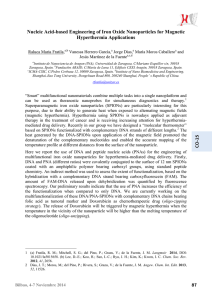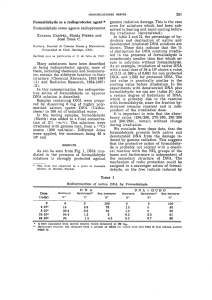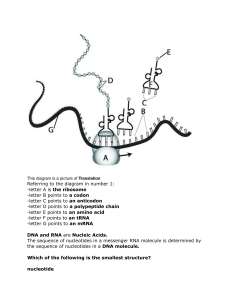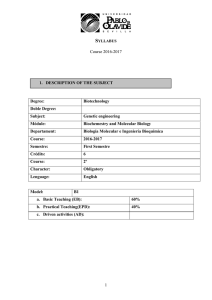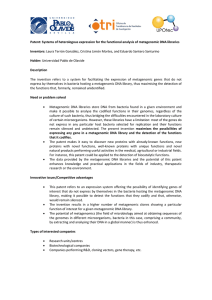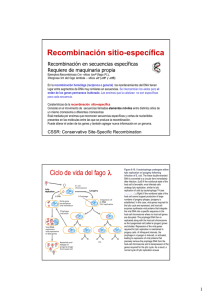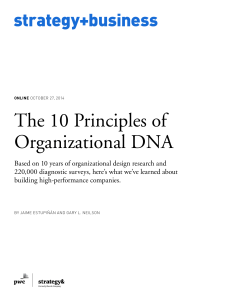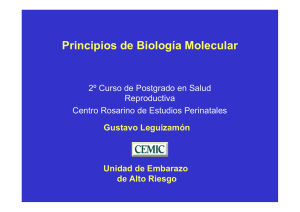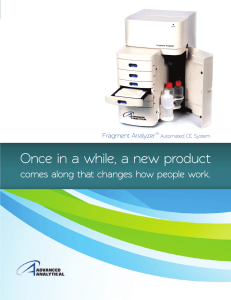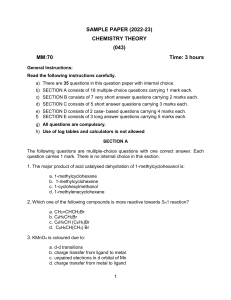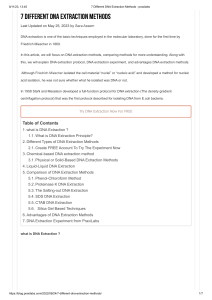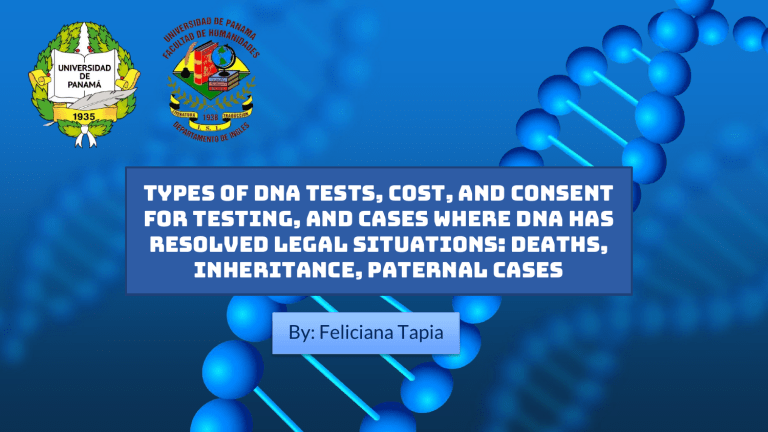
Types of DNA Tests, Cost, and Consent for Testing, and Cases where DNA has resolved legal situations: deaths, inheritance, paternal cases By: Feliciana Tapia classroom participation What do you think is your genetic heritage? What are the different types of genetic tests? There are multiple types of DNA tests. The three most common are: a Y-DNA testing, Autosomal DNA testing, and mitochondrial DNA testing,(mtDNA testing). Y-DNA tests ● ● ● Y-DNA testing can be used by people with a Y chromosome to research their 'patrilineal' ancestry—their ancestry through their male line. Since most females don’t have Ychromosomes, they can’t take Y-DNA tests (though their brother, father, paternal uncle, or paternal grandfather could). Y-chromosome testing uncovers a person’s Y-chromosome haplogroup, the ancient group of people from whom one’s patrilineage descends. Because only one’s male-line direct ancestors are traced by YDNA testing, no females (nor their male ancestors) from whom a male descends are encapsulated in the results. mtDNA tests ● ● ● Mitochondrial DNA tests trace people’s matrilineal (mother-line) ancestry through their mitochondria, which are passed from mothers to their children Since everyone has mitochondria, people of all genders can take mtDNA tests. Mitochondrial DNA testing uncovers a one’s mtDNA haplogroup, the ancient group of people from whom one’s matrilineage descends. Because mitochondria are passed on only by women, no men (nor their ancestors) from whom one descends are encapsulated in the results. Autosomal DNA (atDNA) testing ● ● Autosomal DNA tests trace a person’s autosomal chromosomes, which contain the segments of DNA the person shares with everyone to whom they’re related (maternally and paternally, both directly and indirectly). Because everyone has autosomal chromosomes, people of all genders can take autosomal DNA tests, and the test is equally effective for people of any gender. With an autosomal test, your results won't include information about haplogroups. My Heritage DNA Journe How to take a My heritage a dna test DNA TEST cost Paternity test $69 to $200 $89 Legal case Ancestry $300 to $500 $49 to $200 $350 $89 Prices of dna test in panama Type of DNA test B/. $ 1,703.00 1,6993.00 Paternity 189.00 189.00 Maternity 189.00 189.00 Grandfather-grandson 189.00 189.00 Uncles-niece 189.00 189.00 cousins 189.00 189.00 Unique genetic Profil 189.00 189.00 non-invasive Pre Natal Consent form ● ● ● If you decide to proceed with DNA testing then you need to be aware that it is a legal requirement for all parties to agree to the test. In the case of legal DNA testing involving a child, anyone with a ‘sufficient personal interest’ (including the Child Support Agency) can apply to the High Court, a County Court or a magistrate for a declaration of parentage. The consent of a child under 18 years old is not required, only the consent of the person having ‘care and control’ of him or her. If that person does not consent then the court may arrange for the sample to be taken if it considers to do so would be in the child’s best interests. In other words, a mother or father could be forced to undertake a paternity test. It is not possible to proceed with legal DNA testing if you are unable to get the consent of each individual who needs to be tested. Cases where DNA has resolved legal situations: deaths, in heritance, paternal cases Deaths/crimes inheritance Paternal cases In Deaths cases ● ● The past decade has seen great advances in a powerful criminal justice tool: deoxyribonucleic acid, or DNA. DNA can be used to identify criminals with incredible accuracy when biological evidence exists. DNA is generally used to solve crimes in one of two ways. In cases where a suspect is identified, a sample of that person’s DNA can be compared to evidence from the crime scene. Inheritance case Losing a loved one is a difficult and testing time for most, without the added emotional distress of your biological relationship coming into question. When it comes to claims being made on the estate of the deceased, on some occasions a DNA test will be required. When paternity is not established on a birth certificate, a child making an inheritance claim against their father’s estate can face some difficulties. It’s typically under these circumstances that disputes will lead to DNA testing, which is then able to confirm the entitlement to the inheritance or not. Paternal case ● A DNA paternity test is nearly 100% accurate at determining whether a man is another person’s biological father. DNA tests can use cheek swabs or blood tests. You must have the test done in a medical setting if you need results for legal reasons. Prenatal paternity tests can determine fatherhood during pregnancy. Partial no. 1 Fill the google form You have 10 min Thanks for your attention!
